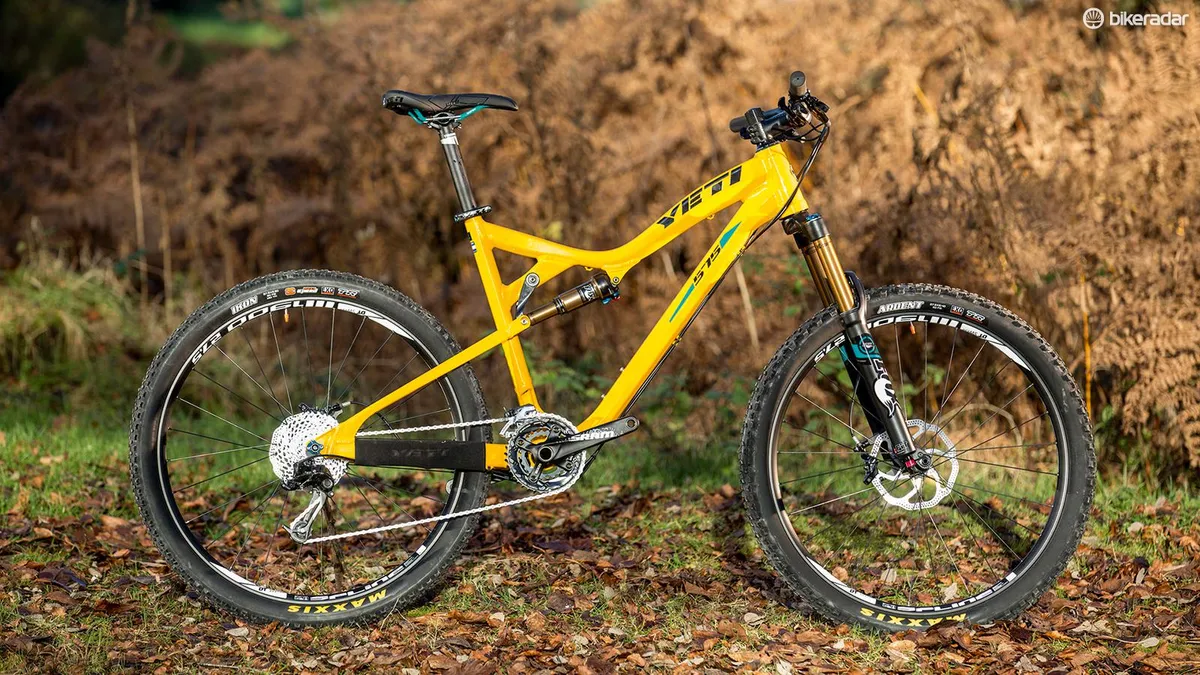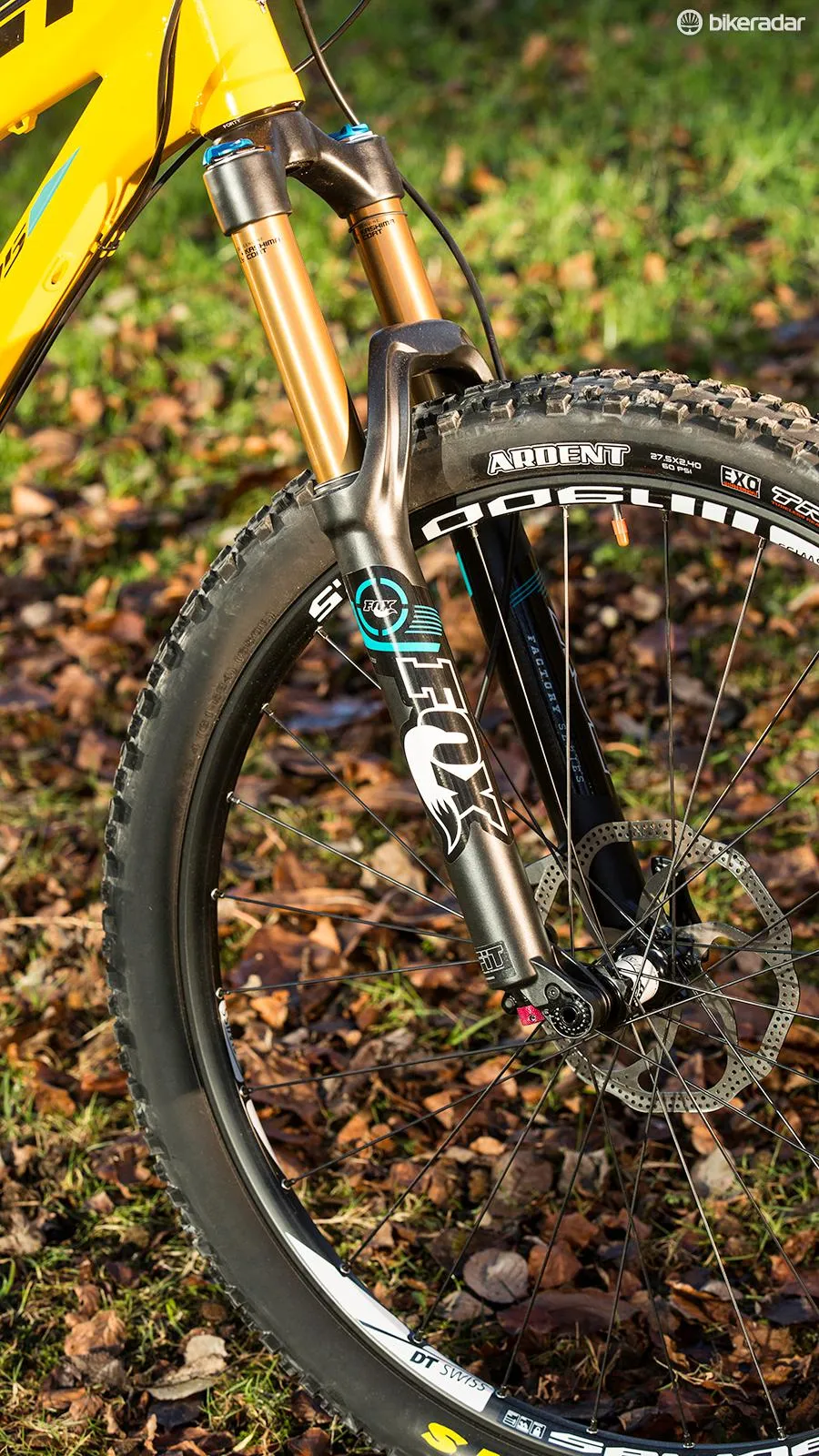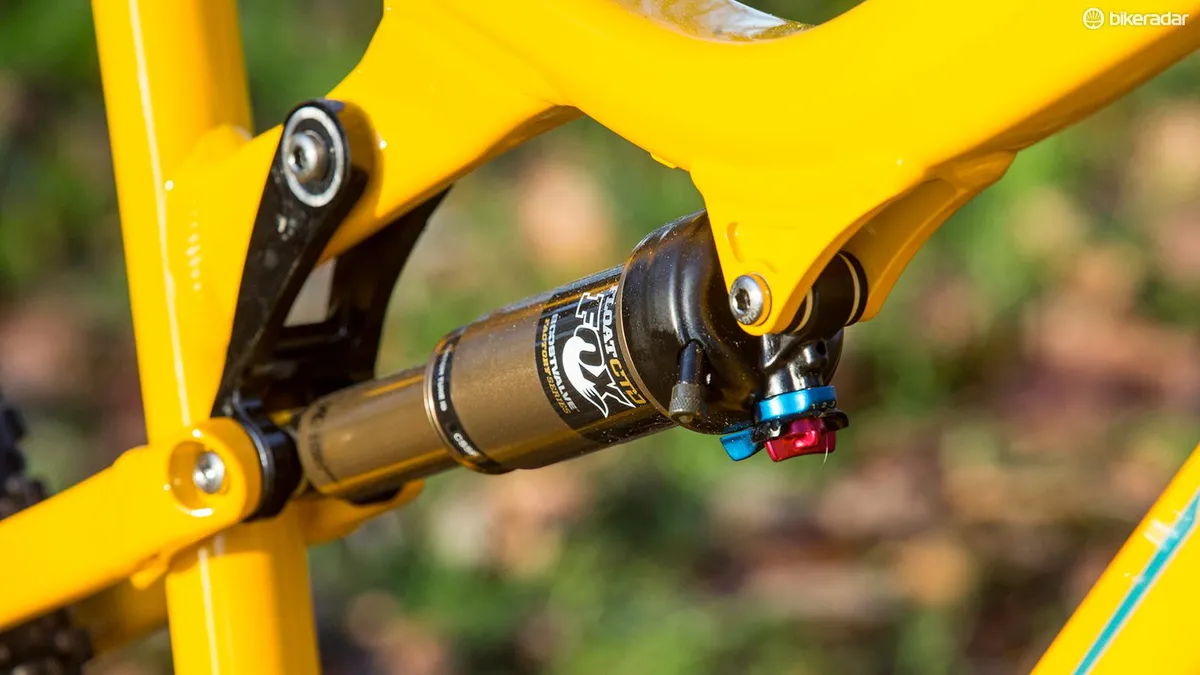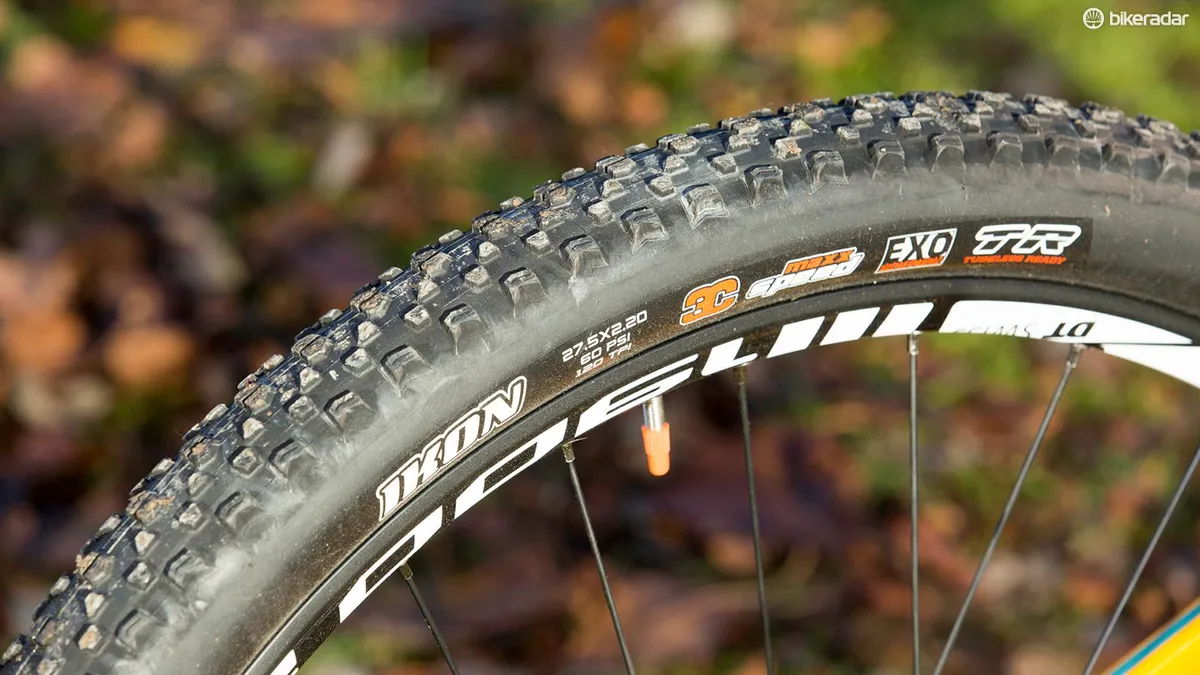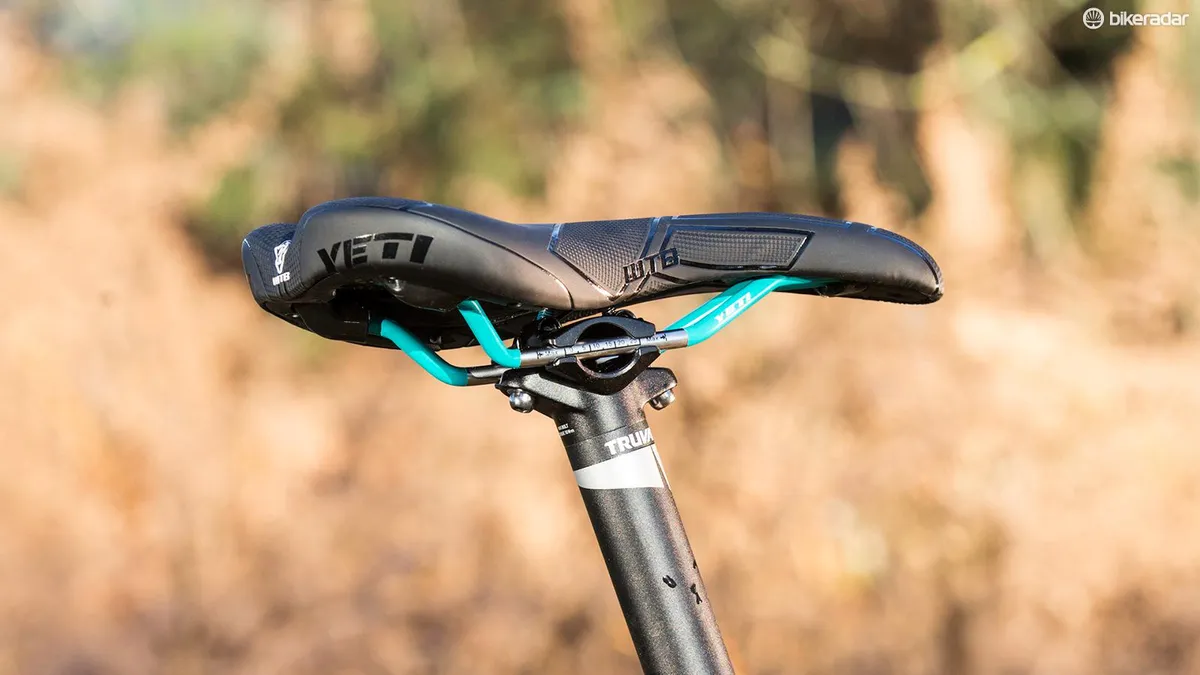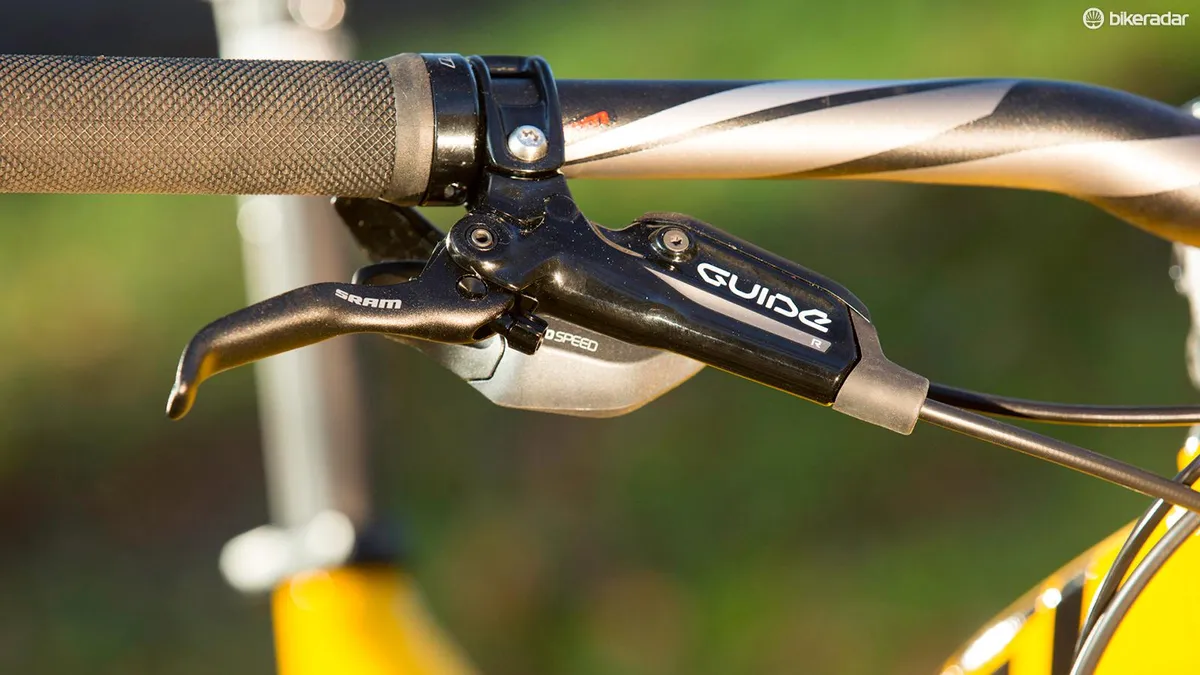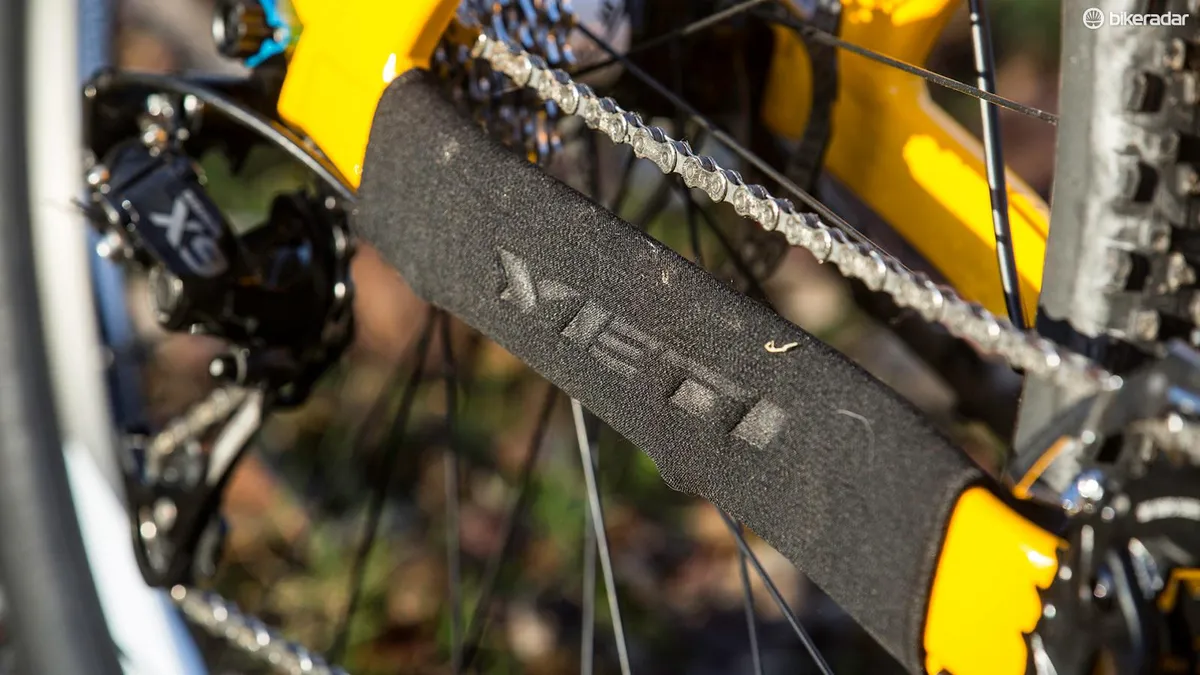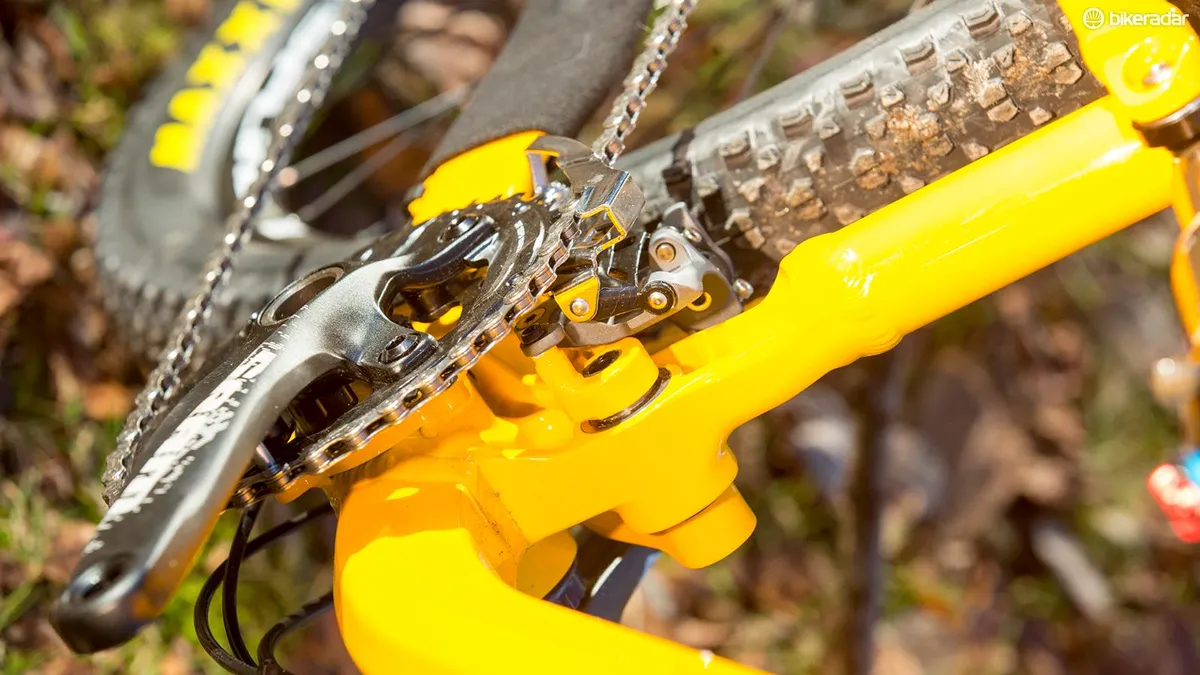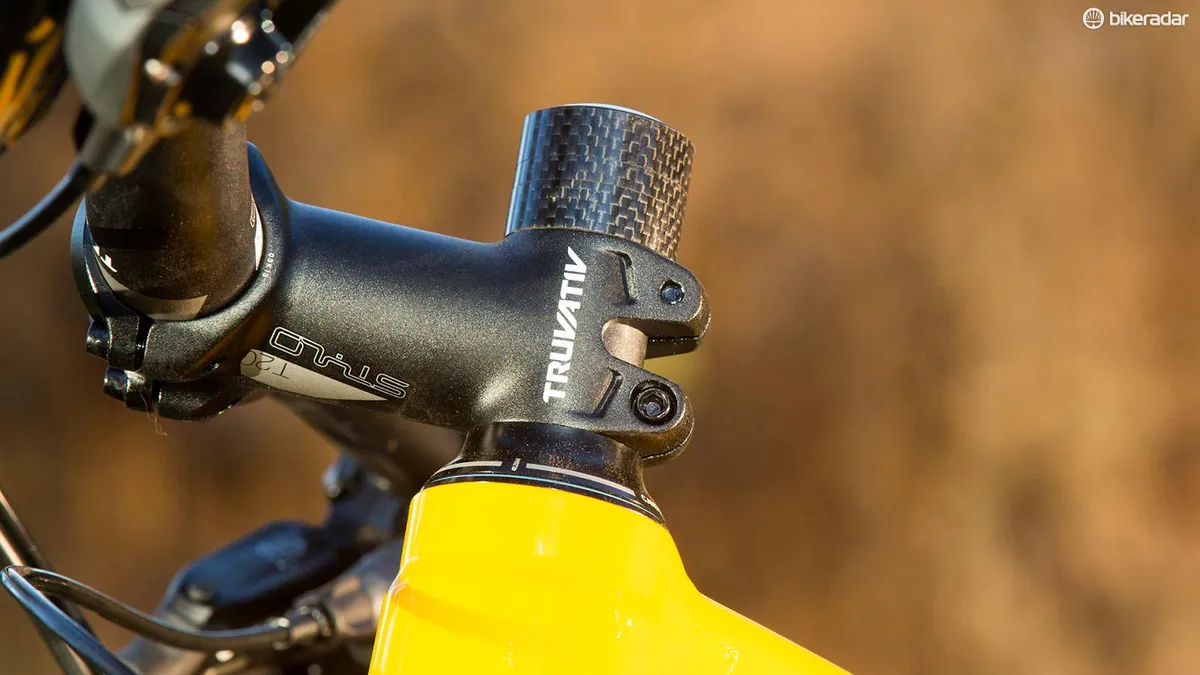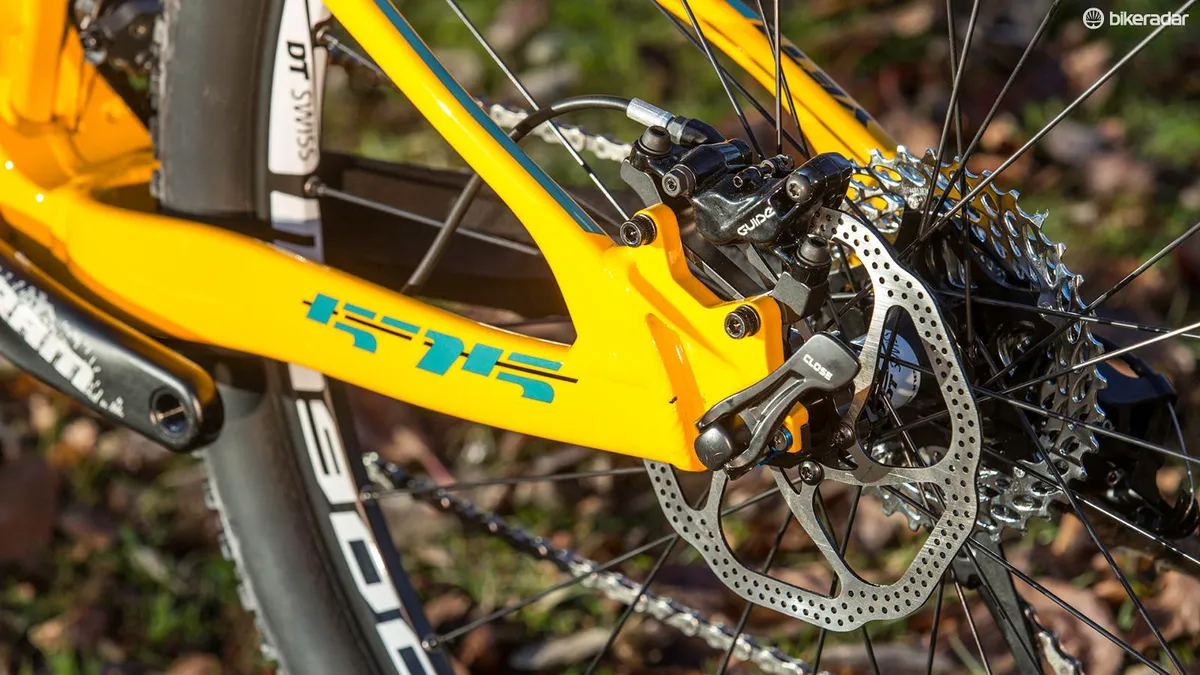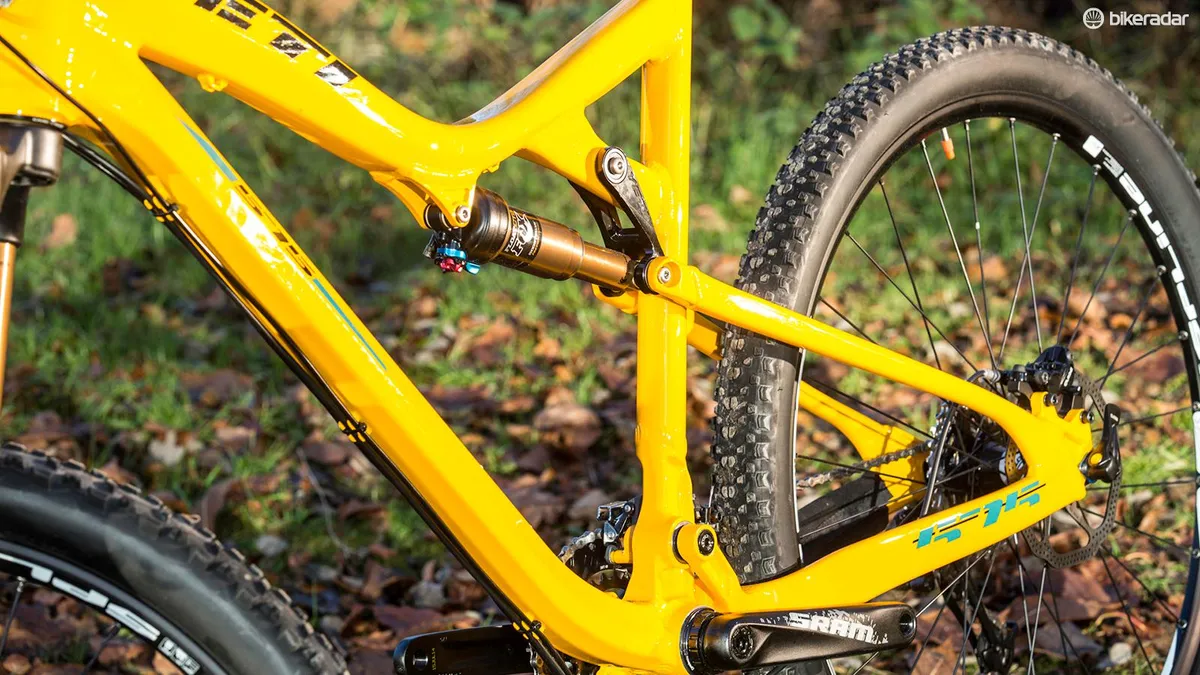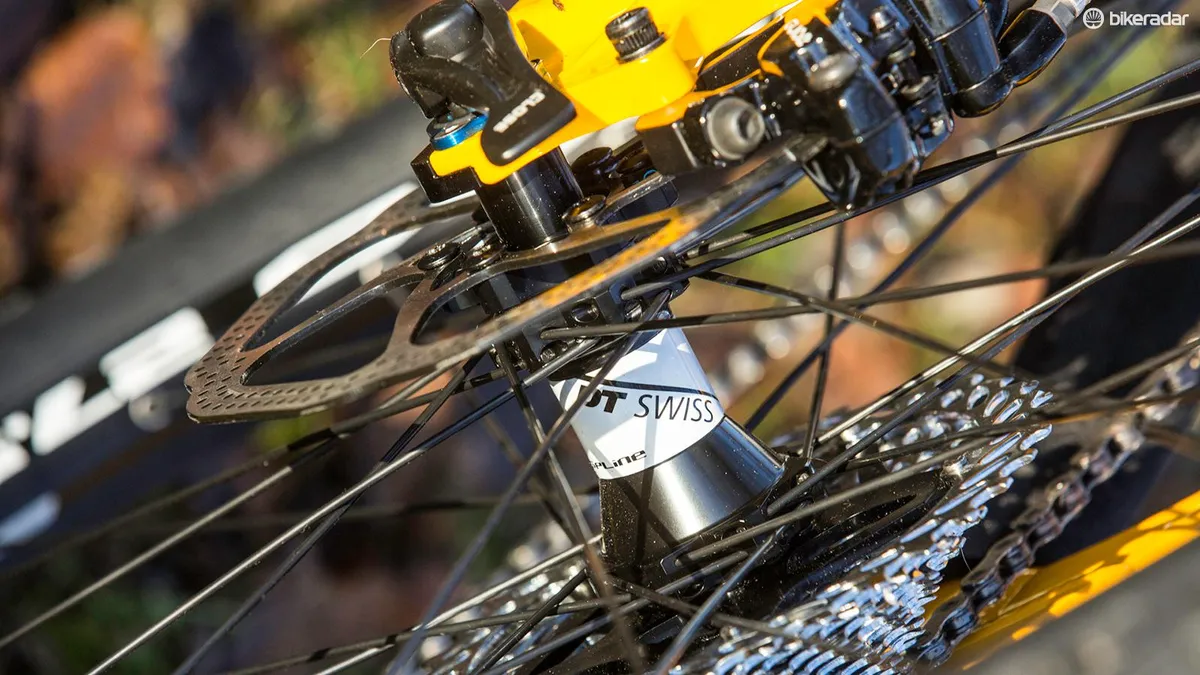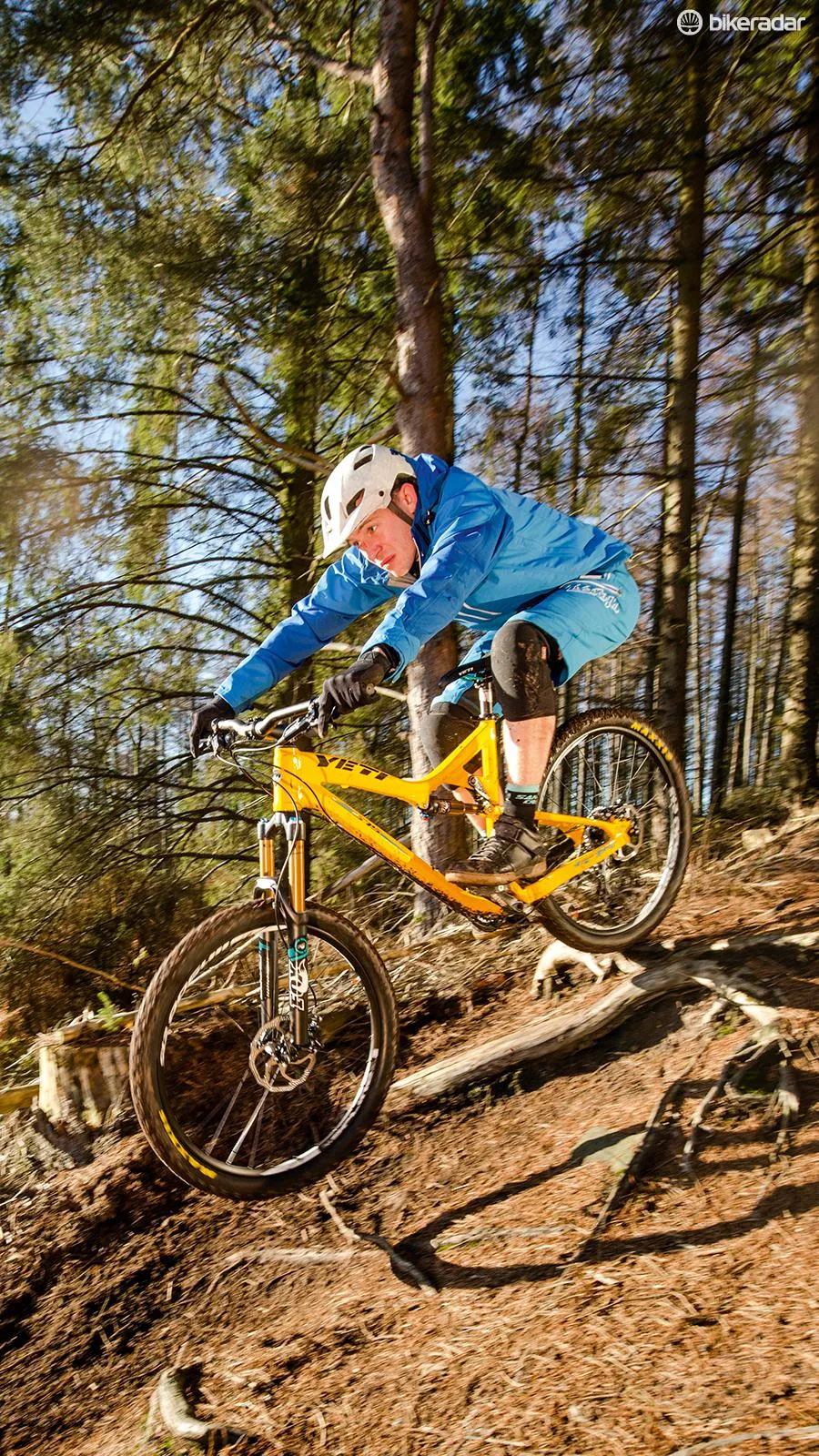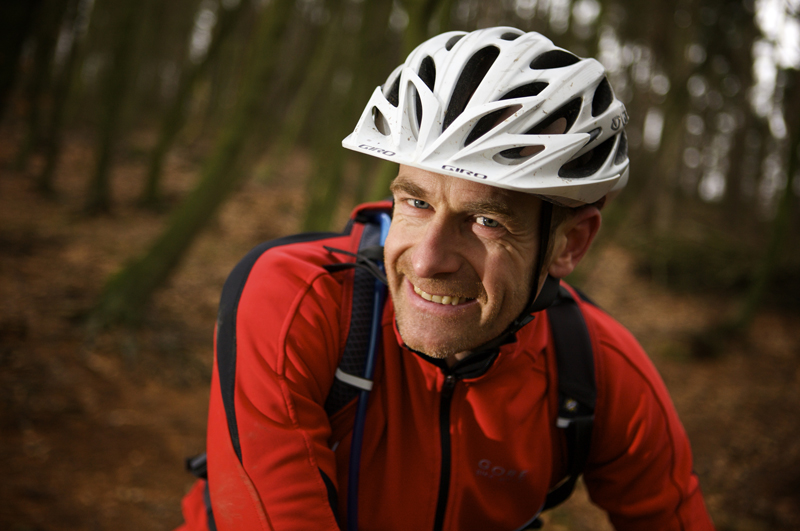Colorado’s most famous brand, Yeti, has inspired particular loyalty for its turquoise machines since its first FRO bikes. Does the updated 575 deserve a cult following?
Frame and equipment: updated with some thoughtful touches
The 575 has been around for over a decade, but the frame has just been overhauled to run 650b wheels and an internally routed dropper post. The ISCG-05 chain guide tabs are now mounted around a 30mm axle compatible press-fit bottom bracket shell too. There’s no rear pivot, with the tapered alloy seatstays designed to flex instead. The suspension rate of the steeply backswept swing linkage setup has been tweaked for more mid-stroke support though.
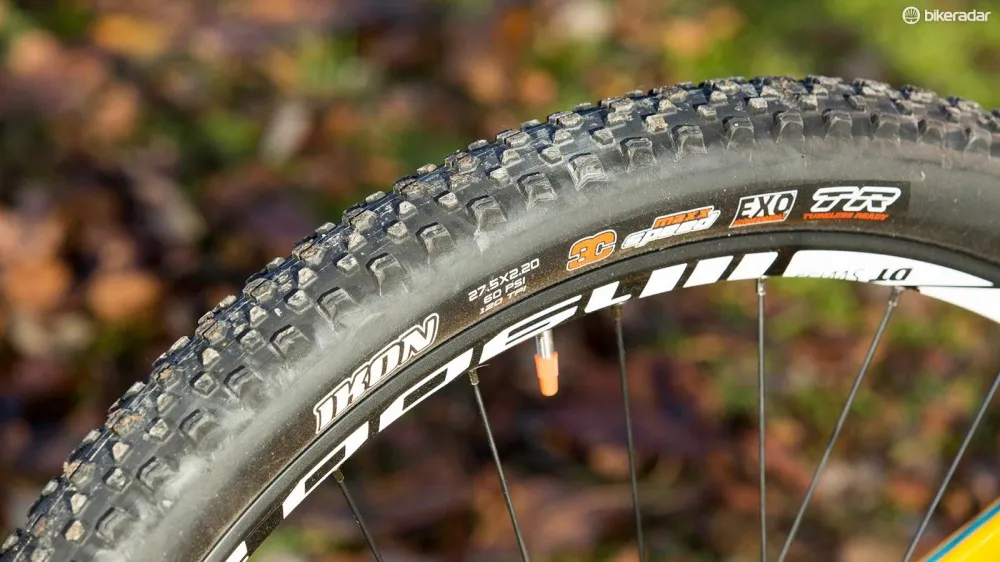
The 650b wheels add noticeable rough terrain smoothness and extra grip compared with the smaller 26in hoops on previous 575 models
The blue anodised dropout inserts mean the frame can take either a quick-release rear wheel or the 142x12mm rear axle standard used on our test bike. The metal head badge is a quality touch too, but our sample had several areas of very thin paint in the pockets of the forged sections. The offset I-beam section that carries the main pivot and gives clearance for the front derailleur narrows down to a scary 20mm wide at one point too. Yeti’s geometry has always been a big part of its bikes’ appeal though and the 575 has a lengthy top tube short-stem compatibility.
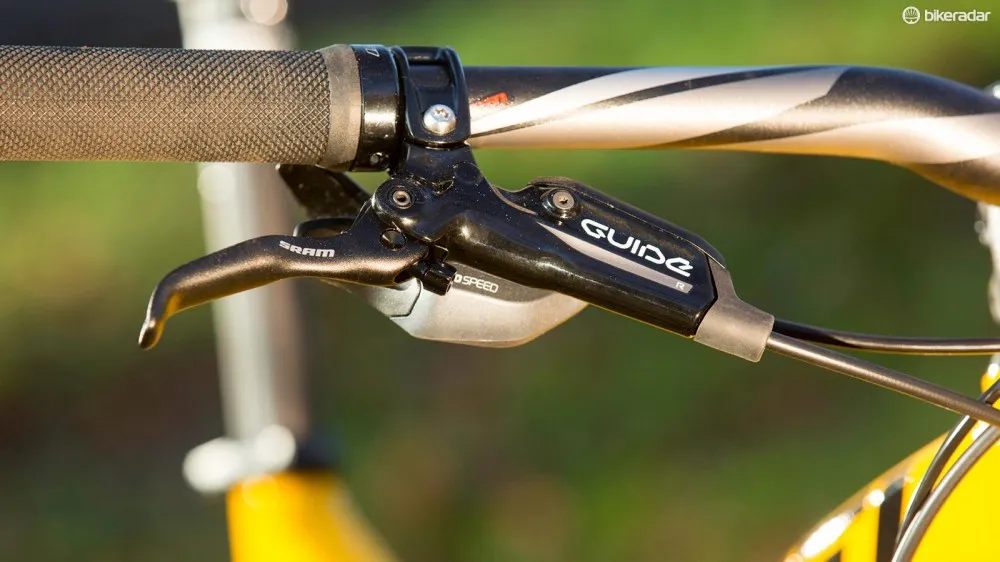
The supplied bar is far too narrow for technical trail riding
You’ll likely want to change the supplied super-narrow 700mm bar and 80mm stem for something more confidence inspiring before you even leave the shop. Otherwise the SRAM 2x10 transmission works OK and the mid-weight DT Swiss wheels get a speed boost from racy treads. The branded grips and saddle are neat additions, but it’s the matching Fox 34 fork (an addition to the Enduro build kit) and the custom tuned, Kashima coated Fox rear shock that really boost the ride quality.
Ride and handling: enjoyable but not one for the most brutal rides
Like Yeti’s design team, Fox has worked hard on its 2015 products and this is obvious at both ends of the 575. The 34 fork settles into its sag super smoothly thanks to seal and lube upgrades, and the FIT damping is impeccably balanced whether the leg-top lever is set in smooth, easy stroking ‘Descend’ mode or the firmer starting ‘Climb’ position.
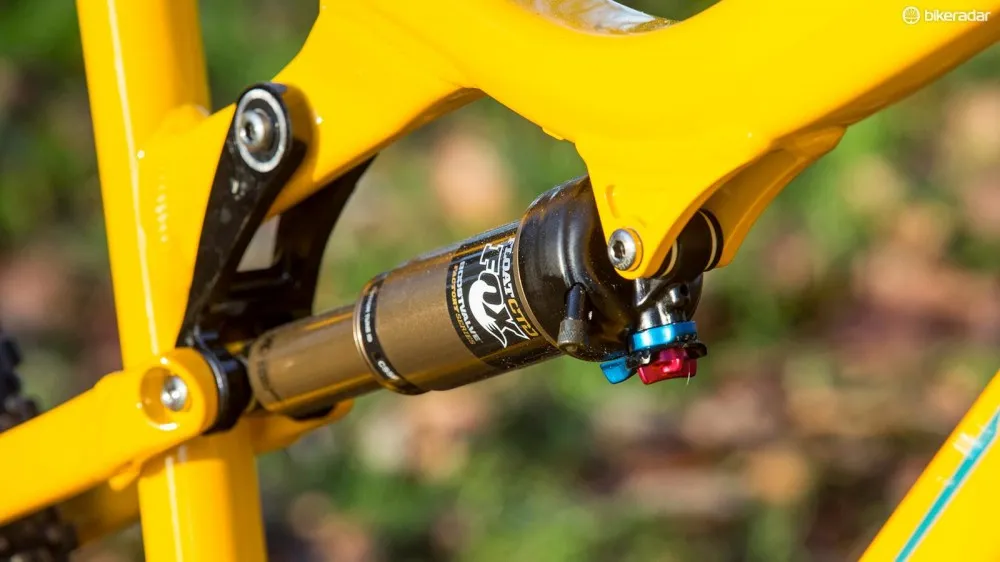
The Kashima coated rear shock floats smoothly over most obstacles thrown at it
It’s the same story at the back too, with the relatively long-stroke Float shock sieving small rocks and roots out of the trail mix and flowing easily over bigger stuff. The reworked linkage definitely feels less linear than the previous version, though with the shock in ‘Descend’ mode the ride is still more about generous comfort than tightly controlled performance. The ‘Trail’ setting is enough to put some feel under your feet and the rear end though, so that was where we left the lever most of the time.
The lack of rear pivots and slim tube sections all save grams and the 3kg frame weight is low for an alloy bike with nearly 150mm of travel. The SRAM transmission gear and cross-country style cockpit reduce mass too, so at 13.74kg (30.29lb, without pedals) it’s lighter than many of its peers.
Combined with the light wheelset and fast rolling rubber, this means the Yeti gains speed easily. The plush suspension holds on to that velocity well in the rough and the 650b tyres add a helping hand over trail chatter. There’s plenty of stretch in that long top tube to keep your lungs open and your blood oxygen rich too, so it climbs well for a long travel bike and it’s an effortless cruiser however long the ride.
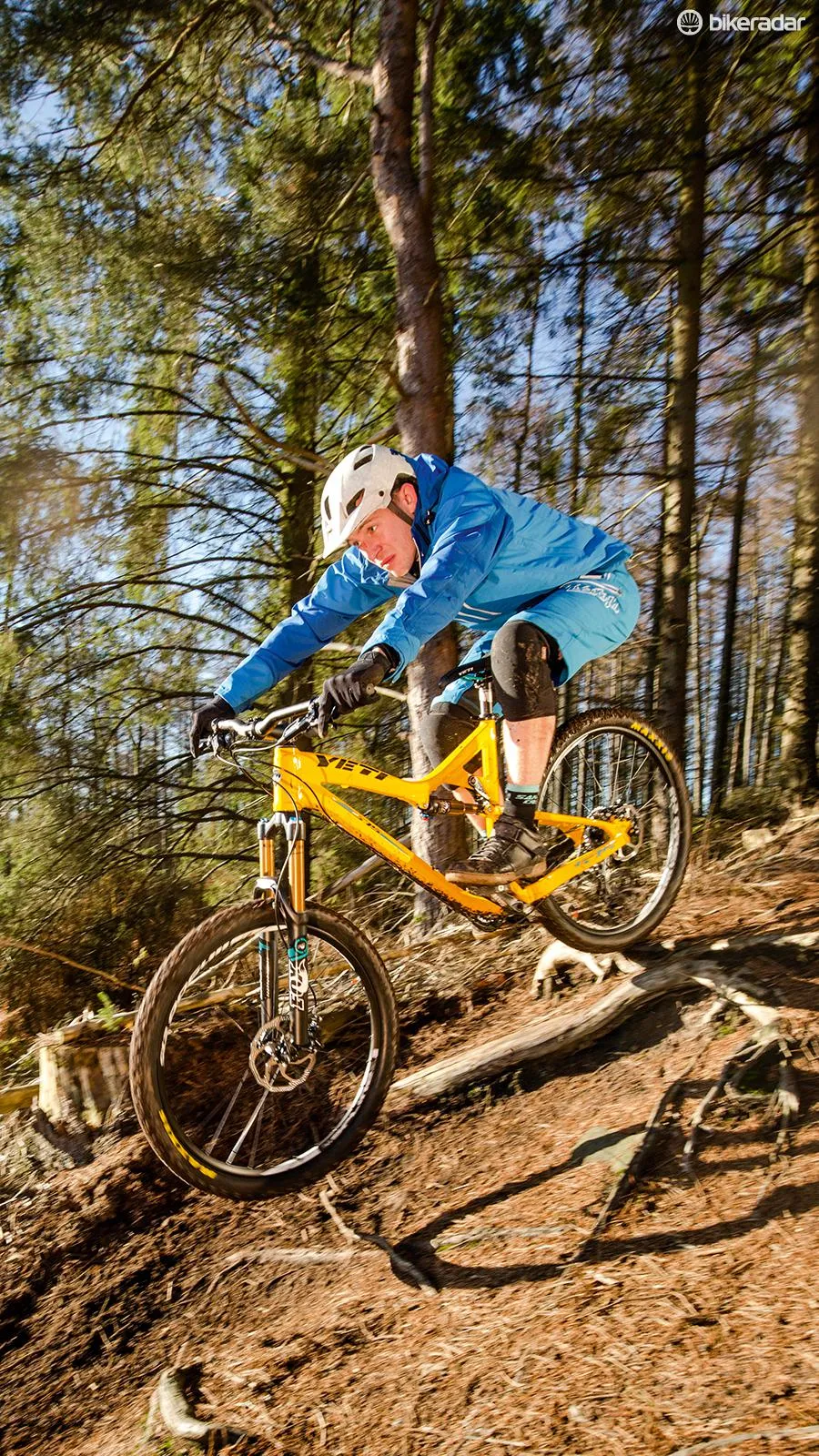
There's obvious flex when you encounter corners, roots and rocks
Typically for Yeti, the angles are also designed to make technical terrain easy. There’s natural steering self-correction from the 67-degree head angle, and the 72-degree seat angle keeps body weight back too. Combined with the easy rear suspension sag, that makes the front wheel easy to pop up despite the long frame. The long top tube and rearward weight positioning don’t leave much weight on the front wheel to bite into corners with though. There’s noticeable twist all through the frame too and the Fox 34 fork isn’t the stiffest either.
Even when we switched the cockpit kit for something with a bit more leverage and underlined it with more aggressive rubber, the 575 was left noticeably lacking when it came to nailing more aggressive lines. It’ll get close if you start early and keep leaning on it, but it’s not comfortable in high load cornering situations or if you try to force the tightest line across random rocks and roots. Add the fact that the linear suspension action can mask specifics, and it’s definitely better suited to less aggressive trail cruisers than serious smash-and-grab gravity bandits.
Note: the US version of this bikes comes with a Race Face bar, stem and seatpost, and costs US$,3499.

